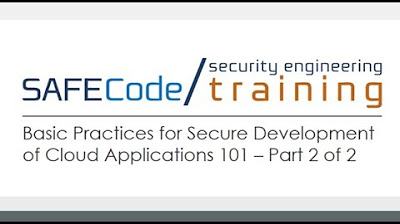Coalesce 2024: How Amplify optimized their incremental models with dbt on Snowflake
Summary
TLDRThe video discusses strategies for implementing incremental models in data management, focusing on ensuring data uniqueness and integrity. It introduces methods such as assigning batch IDs for tracking and creating custom tests for verifying uniqueness across multiple batches. The speaker highlights the efficiency of not null tests in Snowflake and advocates for using model contracts to prevent null values from being included in builds. The session concludes with a Q&A, addressing the cost implications of incremental versus full refresh strategies, inviting further discussion on optimizing data processing.
Takeaways
- 😀 The uniqueness test can be configured to check for duplicates within the last hour, allowing for real-time data integrity.
- 😀 It's crucial to handle test failures carefully; a passing test does not guarantee that previous duplicates were resolved.
- 😀 A more robust method can check for uniqueness in new incoming data along with several prior batches to ensure no duplicates are present.
- 😀 Adding a batch ID column to the model can help track which rows belong to which data batch, simplifying the duplication checks.
- 😀 Custom tests can be created to pull rows from the current batch and a specified number of prior batches for uniqueness checks.
- 😀 There are considerations for testing across the entire dataset, which may require a larger warehouse due to the volume of data being analyzed.
- 😀 Not null tests do not require a WHERE clause since they check only the new incoming rows, making them faster in Snowflake.
- 😀 Model contracts can be implemented to prevent model building if any value in a column is null, offering an extra layer of data validation.
- 😀 Incremental models can significantly reduce data processing costs when configured correctly, especially in large datasets.
- 😀 It's essential to assess whether the incremental approach is worth implementing based on the model size and data processing needs.
Q & A
What is the primary focus of the presentation regarding incremental models?
-The presentation focuses on strategies for managing incremental models in data pipelines, emphasizing the importance of data uniqueness and integrity during the ingestion of new data.
Why is it important to check for uniqueness in new incoming data?
-Checking for uniqueness in new data is crucial to prevent duplicates, which can compromise data integrity. However, passing a uniqueness test does not guarantee that past data was unique.
How does the speaker propose to manage uniqueness across data batches?
-The speaker suggests adding a batch ID column to models, where rows from a full refresh are assigned a value of zero, and subsequent incremental loads are incremented. This helps track and check uniqueness across multiple batches.
What is the role of the custom test mentioned in the script?
-The custom test checks the current data batch along with a user-defined number of prior batches to ensure uniqueness, making the process more robust against potential duplicates.
How does the switching between warehouses work based on the data being processed?
-The system switches between different warehouses depending on whether the current batch includes the zero batch from the full refresh. This optimization helps manage resource usage efficiently.
What alternative does the speaker suggest for handling null values instead of performing not-null tests?
-The speaker suggests using model contracts that prevent the model from building if any null values exist in specified columns, thus proactively avoiding issues rather than identifying them after the build.
What challenges does the speaker mention regarding incremental models with joins?
-The speaker notes that incremental models can struggle with joins, often requiring full refreshes, which can negate the benefits of using incremental strategies.
When might it not be worth implementing incremental strategies, according to the speaker?
-The speaker indicates that for smaller models, implementing incremental strategies may not be cost-effective, especially when using merge strategies, which can sometimes be more expensive than a full refresh.
What efficiency considerations are discussed in relation to incremental builds?
-The presentation discusses the need to evaluate the cost-effectiveness of incremental builds based on data volume and the complexity of operations, suggesting that sometimes a full refresh might be more economical.
How does the speaker's experience inform their recommendations on incremental models?
-The speaker shares insights from practical experience, highlighting the importance of balancing data integrity checks, efficiency, and the complexity of data operations in deciding whether to implement incremental models.
Outlines

Esta sección está disponible solo para usuarios con suscripción. Por favor, mejora tu plan para acceder a esta parte.
Mejorar ahoraMindmap

Esta sección está disponible solo para usuarios con suscripción. Por favor, mejora tu plan para acceder a esta parte.
Mejorar ahoraKeywords

Esta sección está disponible solo para usuarios con suscripción. Por favor, mejora tu plan para acceder a esta parte.
Mejorar ahoraHighlights

Esta sección está disponible solo para usuarios con suscripción. Por favor, mejora tu plan para acceder a esta parte.
Mejorar ahoraTranscripts

Esta sección está disponible solo para usuarios con suscripción. Por favor, mejora tu plan para acceder a esta parte.
Mejorar ahoraVer Más Videos Relacionados

dbt Tutorial: dbt incremental models in bigquery; MERGE vs. INSERT_OVERWRITE #dbt #bigquery #sql

Транзакции | Введение | ACID | CAP | Обработка ошибок

Bancos de Dados - Aula 01 - Visão geral sobre banco de dados e motivação

SAFECode Basic Practices for Secure Development of Cloud Applications 101 Quiz Part 2 p1

Fundamental Concepts of Security Models - CISSP

Manajemen Data dan Informasi
5.0 / 5 (0 votes)
